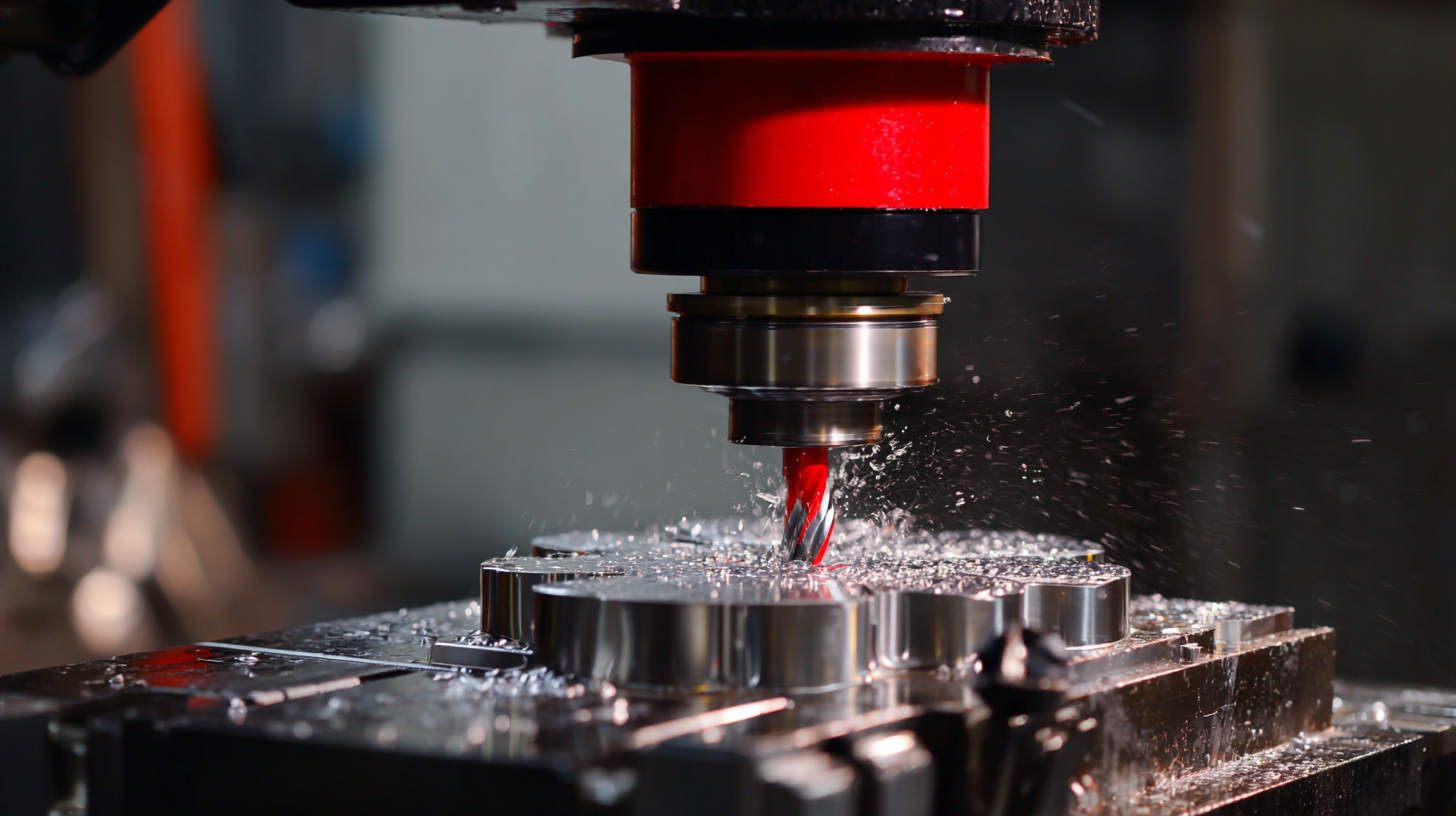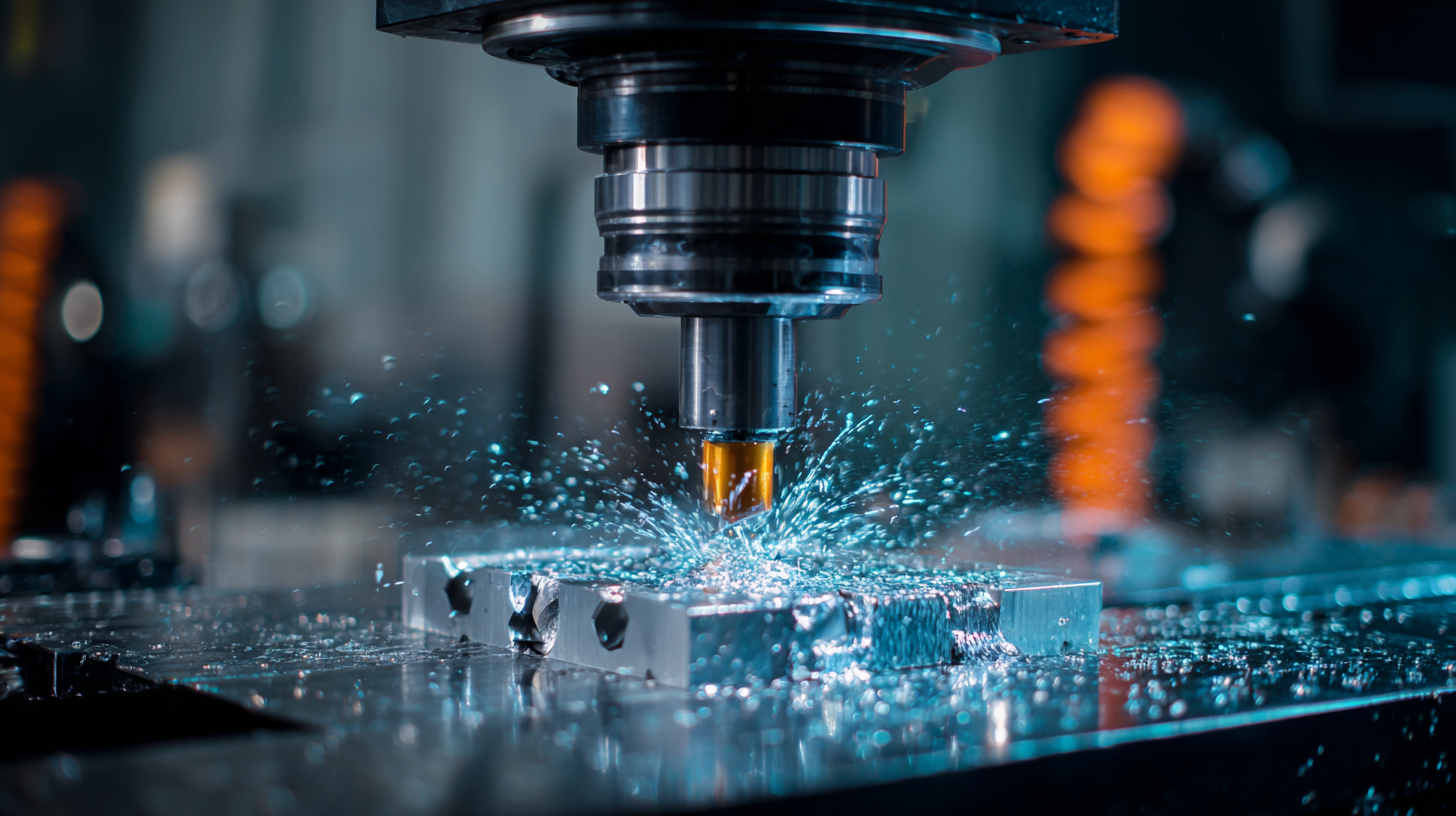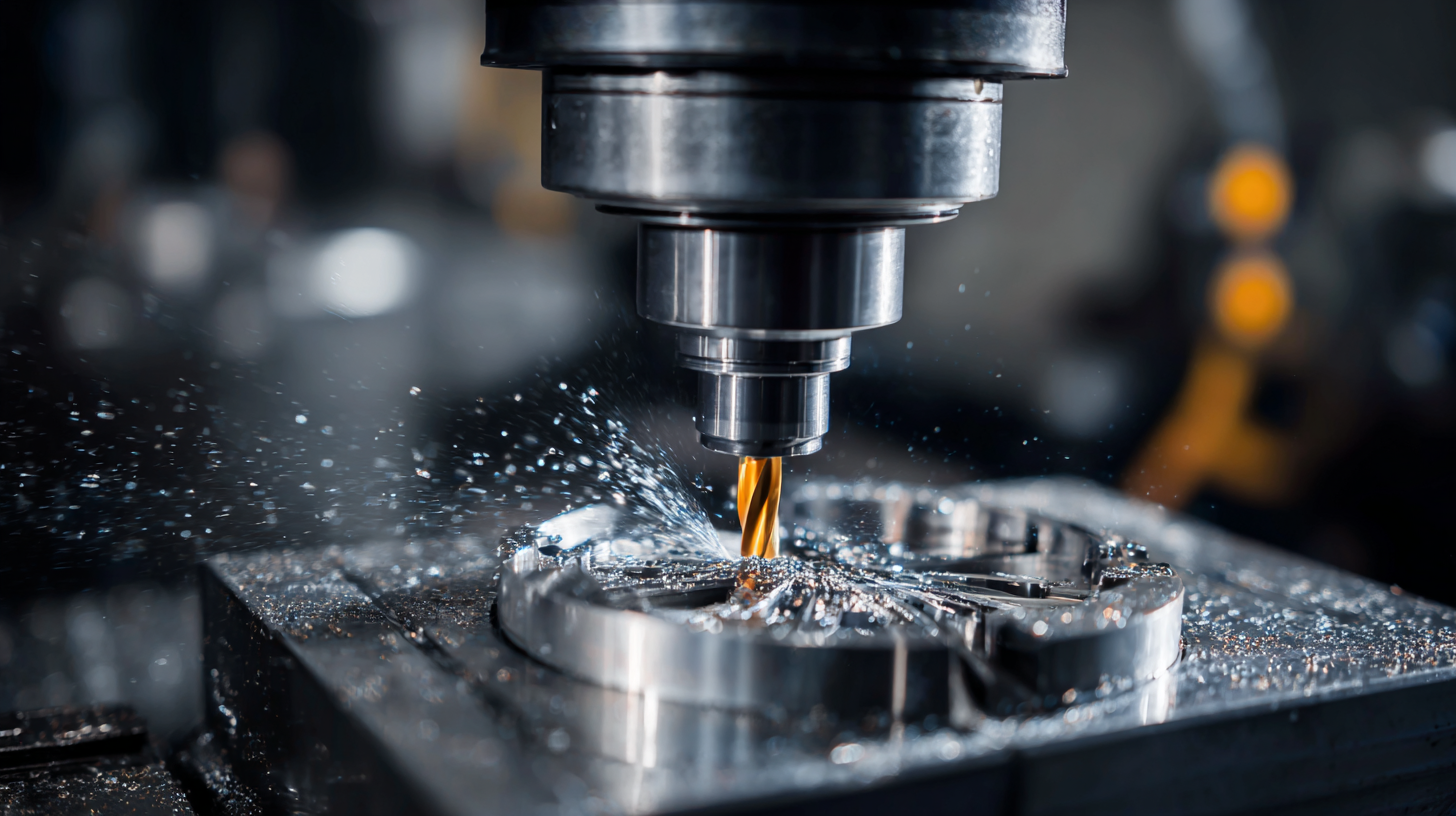5 Reasons Why CNC Machine Tooling is Essential for Modern Manufacturing
In the fast-evolving landscape of modern manufacturing, the importance of CNC machine tooling has reached unprecedented levels. According to a report by MarketsandMarkets, the global CNC machine market is projected to grow from $69.9 billion in 2021 to $99.5 billion by 2026, reflecting a compound annual growth rate (CAGR) of 7.6%. This surge underscores the pivotal role that CNC machine tooling plays in enhancing precision, efficiency, and productivity in manufacturing processes. As industries strive to meet increasing consumer demands and foster innovation, the integration of CNC technologies enables manufacturers to produce complex components with unparalleled accuracy and repeatability. Furthermore, a study by Research and Markets emphasizes that effective CNC machine tooling can lead to a reduction in production time by up to 20%, making it an essential asset for competitiveness in today’s market. Hence, understanding the critical reasons behind the necessity of CNC machine tooling is vital for manufacturers aiming to thrive in this dynamic environment.

The Role of CNC Machine Tooling in Enhancing Precision Manufacturing Efficiency
CNC machine tooling plays a pivotal role in enhancing
precision manufacturing efficiency in today's competitive landscape. By automating complex machining processes,
CNC technologies deliver remarkable accuracy and consistency, which are essential for producing high-tolerance parts across various industries.
This shift towards automation not only minimizes human error but also significantly accelerates production rates, allowing
manufacturers to meet rising market demands efficiently.
Moreover, the integration of advanced technologies like AI into CNC machine tools is further reshaping
the manufacturing sector. As the CNC machines market continues to grow, projected to reach USD 170.4 billion
by 2033, the emphasis on high-precision and multi-axis machining centers is becoming increasingly evident. With innovations such as
high-precision machine tool robot systems bridging the gap between CNC
and industrial robotics, manufacturers are achieving unprecedented levels of productivity and precision, facilitating a new era of
advanced manufacturing. This transformation underscores the essential nature of CNC tooling in the modern manufacturing ecosystem,
where efficiency and precision are paramount.
Comparative Analysis: CNC Machine Tooling vs. Traditional Machining Methods
In today’s manufacturing landscape, a comparative analysis of CNC machining versus traditional methods reveals significant advantages inherent to modern technologies. Traditional machining often relies heavily on manual processes, which can introduce variability through human error. CNC (Computer Numerical Control) machining, on the other hand, employs computerized systems to automate operations, ensuring consistent precision and quality across all produced items. This reliability is a game-changer, enabling manufacturers to meet tight tolerances that traditional methods struggle to achieve.
Additionally, CNC machine tooling fosters greater productivity and efficiency. While traditional methods may require multiple setups and longer lead times due to their labor-intensive nature, CNC machines can run unattended, maximizing output with minimal downtime. The versatility of CNC machines allows for quick changes in production runs, accommodating different designs and reduced batch sizes without sacrificing speed or accuracy. This adaptability is crucial in a dynamic market environment, where customer demands are rapidly evolving, and manufacturers must be agile to stay competitive.
5 Reasons Why CNC Machine Tooling is Essential for Modern Manufacturing
Impact of CNC Tooling on Production Time and Cost Reduction in Manufacturing
The integration of CNC machine tooling in modern manufacturing has significantly impacted both production time and cost efficiency. According to a report by the National Institute of Standards and Technology (NIST), the use of CNC machines can enhance production efficiency by as much as 20-30%. This increase is primarily due to the precision and automation that CNC tooling offers, allowing manufacturers to produce complex parts with reduced labor requirements and higher throughput.
In addition, the cost reductions associated with CNC machine tooling are noteworthy. A study from the Manufacturing Institute indicates that companies investing in CNC technologies can reduce their manufacturing costs by up to 15%. This is achieved through lower waste, minimized errors, and decreased rework times, which collectively contribute to a more streamlined production process.
Tip: When implementing CNC tooling, ensure proper training for operators to maximize the benefits of automation and precision.
Furthermore, the adaptability of CNC machines allows businesses to respond quickly to market changes, facilitating smaller production runs without incurring extensive costs. Companies that leverage CNC technologies can achieve greater flexibility and responsiveness to customer demands.
Tip: Regular maintenance of CNC equipment is crucial to sustain operational efficiency and avoid costly downtimes.

Industry Growth Trends: The Increasing Demand for CNC Machine Tooling Solutions
The demand for CNC machine tooling solutions is surging, driven by significant growth trends across various sectors of the manufacturing industry. The global CNC machine market is projected to expand remarkably from $101.22 billion in 2025 to $195.59 billion by 2032, reflecting a CAGR of 9.9%. This growth underscores the increasing reliance on advanced machining processes that facilitate precision and efficiency in production.
In parallel, the metal forming tools market is set to grow from $29.41 billion in 2025 to an impressive $51.67 billion by 2032, marking a CAGR of 8.4%. Such robust growth indicates a heightened necessity for innovative tooling solutions that enhance manufacturing capabilities. The growing market for tool holders, expected to experience steady growth through 2035, is further testament to the rising adoption of advanced machining technologies. As industries embrace digitalization, IoT, and AI, the demand for effective and versatile CNC machine tooling continues to climb, reshaping modern manufacturing strategies.
Exploring Material Versatility: CNC Tooling in Various Manufacturing Sectors
 CNC machine tooling has revolutionized manufacturing across various sectors by showcasing remarkable versatility in material handling. This technology can work with a wide range of materials, including metals, plastics, wood, and composites, enabling manufacturers to produce intricate designs with precision. For instance, in the aerospace industry, CNC tooling is critical for machining lightweight yet robust materials like titanium and aluminum, ensuring optimal performance and fuel efficiency.
CNC machine tooling has revolutionized manufacturing across various sectors by showcasing remarkable versatility in material handling. This technology can work with a wide range of materials, including metals, plastics, wood, and composites, enabling manufacturers to produce intricate designs with precision. For instance, in the aerospace industry, CNC tooling is critical for machining lightweight yet robust materials like titanium and aluminum, ensuring optimal performance and fuel efficiency.
Moreover, CNC tooling's adaptability extends to the automotive sector, where it is employed to create complex engine components and chassis parts. The ability to maintain tight tolerances while working with different materials allows for enhanced safety and durability of vehicles. Additionally, the medical industry benefits immensely from CNC technology, utilizing it for the production of customized implants and surgical instruments tailored to individual patient needs. This material versatility not only streamlines production processes but also fosters innovation, making CNC machine tooling an indispensable asset in modern manufacturing.